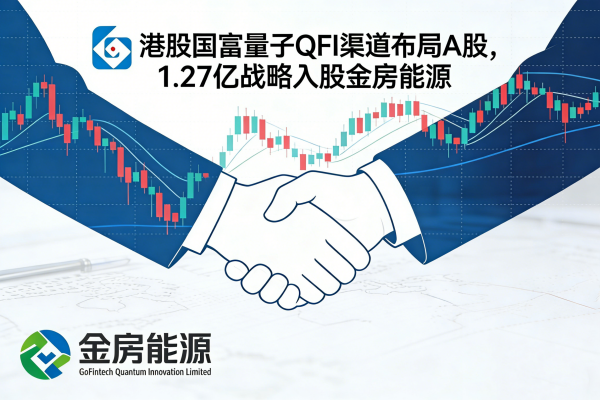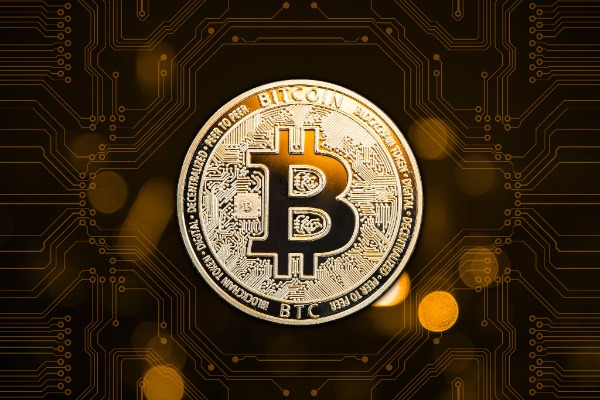How does inflation affect the cryptocurrency market?
Learn how inflation affects the cryptocurrency market, from Bitcoin’s role as “digital gold” to central bank policy.
Inflation erodes the value of fiat currencies, prompting some investors to seek alternative stores of value such as gold, real estate, and cryptocurrencies.
Bitcoin is often referred to as “digital gold” because its supply is capped at 21 million, but its high volatility makes its reliability as a short-term inflation hedge challenging.
Monetary policy has a significant impact on the cryptocurrency market - higher interest rates generally reduce risk appetite, while low interest rates and money printing generally drive speculative investment in cryptocurrencies.
Cryptocurrencies can serve as an alternative store of value in countries facing hyperinflation or currency devaluation.
Institutional investors and corporations are increasingly including Bitcoin in portfolios and corporate vaults as a hedge against inflation, contributing to the evolution of its market dynamics.
Decentralized finance (DeFi) and stablecoins offer alternative ways to combat inflation, providing opportunities to generate income and more stable digital assets.
Given the evolving role of cryptocurrencies in global finance, long-term holders are advised to view cryptocurrencies as part of a diversification strategy rather than a guaranteed hedge against inflation.
Regulatory changes, technological advancements, and shifting global economic conditions will continue to impact the relationship between inflation and the cryptocurrency market.
Traders should monitor inflation indicators and central bank policies, as these factors can heavily influence cryptocurrency price action and overall market sentiment.
Introduction - What is inflation and how does it impact the crypto market?
Inflation is traditionally defined as a sustained increase in the general price level of goods and services in an economy, which over time erodes the purchasing power of fiat currencies. When inflation rises, investors typically seek assets that can hedge against this loss of value. Historically, these assets have included precious metals (such as gold), real estate, and certain commodities.
Bitcoin as “Digital Gold”
Bitcoin, often referred to as “digital gold,” has emerged as a potential inflation hedge in the modern economy. This view stems from several key features.
First, Bitcoin’s supply is capped at 21 million coins. Unlike fiat currencies, which central banks can print at will, Bitcoin’s supply is programmatically limited. This scarcity has led many investors to view it as a store of value during periods of high inflation.
However, the reality is more nuanced than this simple narrative. While Bitcoin’s fixed supply makes it theoretically inflation-resistant, its price volatility may overshadow its potential benefits as an inflation hedge in the short term.
Monetary Policy, Inflation, and Cryptocurrency Markets
Central bank responses to inflation can have a significant impact on cryptocurrency markets. When inflation rises, central banks typically respond by raising interest rates. This monetary tightening has several implications for cryptocurrency markets.
Higher interest rates make income-generating investments more attractive, potentially drawing capital away from cryptocurrencies. When investors can earn attractive returns from “risk-free” government bonds, the opportunity cost of holding cryptocurrencies (generally viewed as riskier assets) increases.
Traditionally, the availability of cheap money in a low-interest rate environment tends to fuel speculation in risky assets, including cryptocurrencies. In particular, in 2024, the cryptocurrency market reacted immediately to interest rate adjustments in the United States—rate cuts coincided with bullish sentiment and price increases in the cryptocurrency market.
Conversely, when central banks raise interest rates to combat inflation, this can lead to a “risk-off” sentiment that particularly affects cryptocurrency markets because of their perceived high-risk nature.
Global Economic Context of Inflation and Crypto Markets
Inflation does not occur in isolation, and its impact on the cryptocurrency market is often intertwined with broader economic conditions. Several factors are at play:
Currency Debasement: Cryptocurrencies can serve as an alternative store of value in countries experiencing severe inflation or currency crises. Venezuela and Turkey have seen an increase in cryptocurrency adoption during periods of high inflation and currency debasement, suggesting that extreme inflationary environments can drive cryptocurrency adoption.
Economic Uncertainty: Inflation often coincides with periods of economic uncertainty, which can have a paradoxical effect on the cryptocurrency market. While some investors may look to cryptocurrencies as a hedge, others may reduce exposure to volatile assets during periods of uncertainty.
Global Capital Flows: Inflation can affect international capital flows, affecting the movement of funds between different asset classes and jurisdictions. Cryptocurrencies are inherently borderless and can benefit from this flow of capital seeking a stable store of value.
Inflation and Institutional Investment in Crypto Markets
The relationship between inflation and the cryptocurrency market has also changed as institutional participation has increased. Professional investors and businesses have begun to look at cryptocurrencies, especially Bitcoin, as a potential inflation hedge in their portfolios.
This institutional adoption has several implications:
Portfolio diversification: Large investors are beginning to consider cryptocurrencies as part of a broader inflation hedging strategy, alongside traditional assets like gold and inflation-protected securities. This is particularly evident in spot Bitcoin exchange-traded funds (ETFs). In February 2025, 25% of all assets under management in this category were held by institutional investors. Over time, this approach could lead to more sophisticated trading strategies and potentially more stable crypto markets.
Corporate treasury management: Some companies have begun holding Bitcoin on their balance sheets as a hedge against inflation and currency depreciation. This corporate adoption could create new demand dynamics in the cryptocurrency market.
Maturity and development of the cryptocurrency market
As the cryptocurrency market matures, its relationship with inflation is evolving. Several trends are worth noting:
The development of DeFi: The emergence of decentralized finance (DeFi) is creating new opportunities for yield in the crypto ecosystem, potentially making these assets more attractive during inflationary times.
Stablecoins and CBDCs: The growth of stablecoins and the development of central bank digital currencies (CBDCs) are creating new dynamics for how digital assets interact with traditional monetary policy and inflation.
Inflation and Cryptocurrencies: Trading Considerations
Understanding the relationship between inflation and the cryptocurrency market has important implications for traders:
1. Long-term view: While it is believed that cryptocurrencies may act as an inflation hedge in the long term, investors should be aware of their short-term volatility.
2. Portfolio allocation: Cryptocurrencies should be considered alongside other assets in an inflation hedging strategy, with appropriate risk management measures in place.
3. Market monitoring: Traders need to keep an eye on inflation indicators and monetary policy decisions, as these can have a significant impact on the cryptocurrency market.
Future Considerations for Inflation and Cryptocurrency Markets
The relationship between inflation and the cryptocurrency market is likely to continue to evolve as the asset class matures. Several factors may influence this evolution.
As regulatory frameworks evolve, they may impact the functionality of cryptocurrencies as inflation hedges, as well as their broader role in the financial system. Continued innovation in the cryptocurrency space, particularly in areas such as scalability and energy efficiency, may impact how these assets perform during periods of inflation. Finally, the changing nature of the global economy, including potential shifts in monetary systems and the role of digital currencies, will impact how cryptocurrencies interact with inflation.
Conclusion: How Does Inflation Affect Crypto Markets?
The impact of inflation on the cryptocurrency market is complex and multifaceted, beyond simple correlation. While cryptocurrencies, especially Bitcoin, have been promoted as inflation hedges, their actual performance during inflationary periods has been mixed. The relationship between inflation and the cryptocurrency market continues to evolve as institutional adoption increases, technology advances, and economic conditions change.
As the cryptocurrency market matures, understanding these dynamics becomes increasingly important for investors and traders. While cryptocurrencies may play a role in inflation hedging strategies, their high volatility and evolving nature suggest that they should be viewed as part of a broader investment approach rather than a stand-alone solution to inflation problems.
Do Your Due Diligence and Do Your Own Research
All examples listed in this article are provided for informational purposes only. You should not construe any such information or other materials as legal, tax, investment, financial, cybersecurity, or other advice. Nothing contained in this article constitutes a solicitation, recommendation, endorsement, or offer to invest in, purchase, or sell any token, token, or other crypto asset. Returns from the purchase and sale of crypto assets may be subject to tax in your jurisdiction, including capital gains tax. Any description of products or features is for illustrative purposes only and does not constitute an endorsement, invitation or solicitation.
Although the term "stablecoin" is used in a broad manner, there is no guarantee that the asset will maintain a stable value relative to the value of a reference asset when traded on a secondary market, nor that asset reserves, if any, will be sufficient to meet all redemptions.
Past performance is no guarantee or prediction of future performance. The value of crypto assets may increase or decrease, and you could lose all or a substantial portion of your purchase price. You must conduct research and due diligence to exercise your best judgment when evaluating crypto assets, as any purchase is made at your sole risk.













